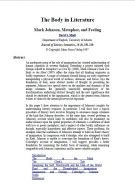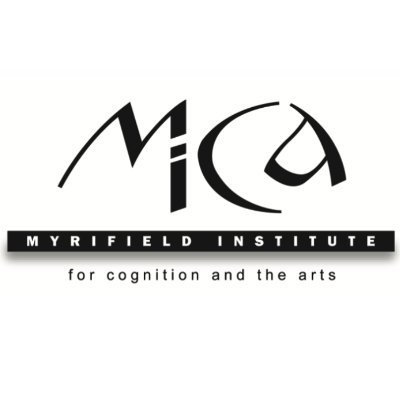
Last paper:
Grazia Pulvirenti, Renata Gambino, Neurohermeneutics. A Transdisciplinary Approach to Literature
- Peer review
- Submit a paper
- Suggest a paper
- Contact us
- Partner program
David S. Miall,
The Body in Literature: Mark Johnson, Metaphor, and Feeling
 Source: Journal of Literary Semantics,
Source: Journal of Literary Semantics,Year: 1997
DOWNLOAD PAPER
Download size: 174.08 KB
An inadequate grasp of the role of imagination has vitiated understanding of human cognition in western thinking. Extending a project initiated with George Lakoff in Metaphors we Live By (1980), Mark Johnson's book The Body in the Mind (1987) offers the claim that all thinking originates in bodily experience. A range of schemata formed during our early experience manipulating a physical world of surfaces, distances, and forces, lays the foundation of later, more abstract modes of thought. In presenting his argument, Johnson lays special stress on the qualities and dynamics of the image schemata, the (generally unnoticed) metaphoricity of the transformations underlying abstract thought, and the new significance that should be attributed to the imagination, which is the general term Johnson wishes to claim for the mental processes he expounds. In this paper I draw attention to the importance of Johnson's insights for understanding literary response. In particular, I will show how a typical procedure of literary texts involves bringing to awareness image schemata of the kind that Johnson describes. At the same time, several problems in Johnson's account which limit its usefulness will also be examined: an undue reliance upon the spatial properties of schemata; a conflation of dead with live or poetic metaphors; and a neglect of other bodily influences on thought, especially kinaesthetic and affective aspects. These problems, for example, limit the usefulness of Johnson's attempt to build on Kant's theory of imagination. In comparison with Coleridge, who also attempted to build on Kant, Johnson is unable to overcome the formalism of Kant's theory. Coleridge's account of imagination, I will suggest, provides a better foundation for examining the bodily basis of meaning, while remaining compatible with Johnson's intentions and his more valuable insights.
Project
The Neuro Humanities Studies Network aims at creating a multidisciplinary research community in order to develop and structure a linking platform for neuro-scientific, cognitive topics and humanities.
Click on each keyword to show papers related with it.









